Overview of Metal Roofing Machines
When it comes to roofing, metal has become a popular choice for homeowners and contractors alike. But did you know that the efficiency and quality of your metal roofing largely depend on the machine used to create it? Metal roofing machines are designed to roll-form metal sheets into various shapes, making them a crucial investment for anyone in the construction business.
In this article, we’ll explore the ins and outs of metal roofing machines, including specific models, their working processes, key components, and so much more. Whether you’re considering a purchase or just want to learn more, you’re in the right place!
Guide to Corrugated Iron Sheets
Corrugated iron sheets have been a staple in roofing for years. Their wavy design adds strength and durability while allowing for efficient water runoff. But why is this relevant to metal roofing machines? Well, these machines are often tasked with producing corrugated sheets in various profiles.
Imagine being able to customize your roofing sheets according to your specific needs, whether for residential or commercial use. The versatility of metal roofing machines allows you to achieve that!
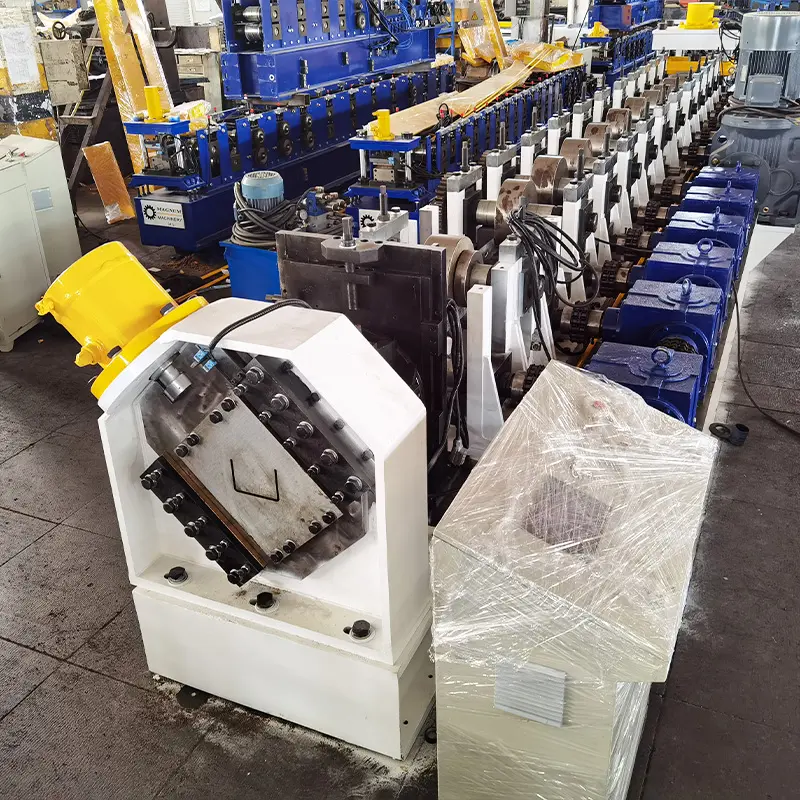
Types of Metal Roofing Machines
Here’s a quick look at some popular types of metal roofing machines.
| Metal Roofing Machine Types | Description |
|---|---|
| Standing Seam Machines | Designed for creating vertical seams for better water drainage. |
| Corrugated Sheet Machines | Ideal for producing corrugated sheets with enhanced structural integrity. |
| Tile Forming Machines | Mimics the look of traditional tiles while offering metal durability. |
| Slitting Machines | Cuts large metal sheets into narrower strips for further processing. |
| Cut-to-Length Machines | Cuts metal sheets to specified lengths, perfect for customized projects. |
| Roll Forming Machines | Versatile machines that can create a variety of profiles in one go. |
| Metal Shearing Machines | Shears metal sheets to desired dimensions before further processing. |
| Bending Machines | Allows for precision bending of metal sheets for architectural features. |
| Press Brakes | Used for folding and shaping metal sheets, offering versatility in design. |
| Hydraulic Forming Machines | Utilizes hydraulic power for heavy-duty forming tasks. |
Working Process of Metal Roofing Machines
So how does a metal roofing machine actually work? Let’s break it down.
The metal forming process typically starts with the raw metal coil. This coil is fed into the machine, which unrolls and guides it through a series of rollers. These rollers gradually shape the metal into the desired profile.
Think of it like a giant cookie cutter, but instead of dough, it’s shaping metal! The machine can often adjust settings to accommodate different profiles, making it incredibly versatile. The finished sheets can then be cut to length, stacked, and prepared for delivery.
Key Components and Their Functions
Understanding the components of a metal roofing machine can help you appreciate its efficiency. Here’s a breakdown:
| Key Components | Function |
|---|---|
| Rollers | Shape the metal into desired profiles. |
| Motor | Drives the machine and powers the rollers. |
| Control Panel | Allows for machine settings adjustments and monitoring. |
| Feed Table | Guides the metal into the machine accurately. |
| Cutting Mechanism | Cuts sheets to specified lengths at the end of the process. |
| Hydraulic System | Powers the bending and shaping processes when necessary. |
| Support Stands | Keeps the metal sheets stable during the forming process. |
-
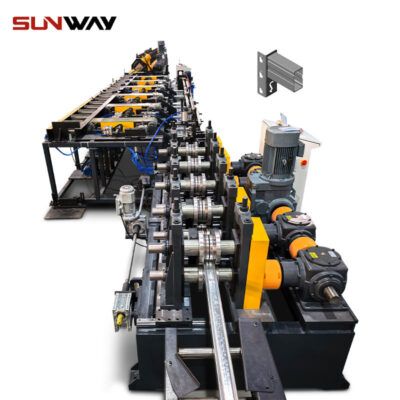 Storage Rack Shelf Box Panel Making Machine Steel Storage Rack System Box Beam Roll Forming Line
Storage Rack Shelf Box Panel Making Machine Steel Storage Rack System Box Beam Roll Forming Line -
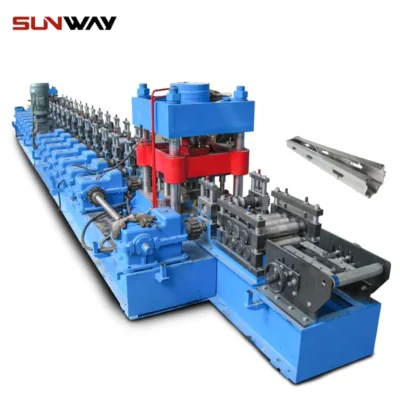 Vineyard Post Roll Forming Machine
Vineyard Post Roll Forming Machine -
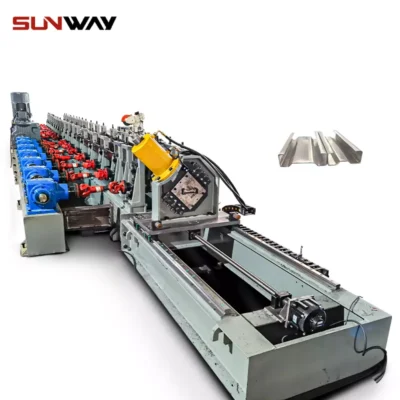 Auto Size Changeable Sigma Purlin Roll Forming Machine
Auto Size Changeable Sigma Purlin Roll Forming Machine -
 Auto Size Changeable C Z Purlin Roll Forming Machine
Auto Size Changeable C Z Purlin Roll Forming Machine -
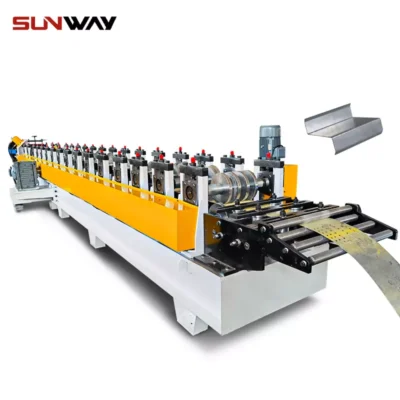 Auto Size Changeable Z Purlin Roll Forming Machine
Auto Size Changeable Z Purlin Roll Forming Machine -
 Auto Size Changeable C U Purlin Roll Forming Machine
Auto Size Changeable C U Purlin Roll Forming Machine -
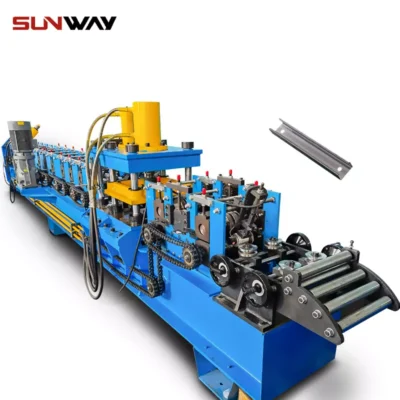 C Section Bracing Omega Storage Rack Upright Post Roll Forming Machine
C Section Bracing Omega Storage Rack Upright Post Roll Forming Machine -
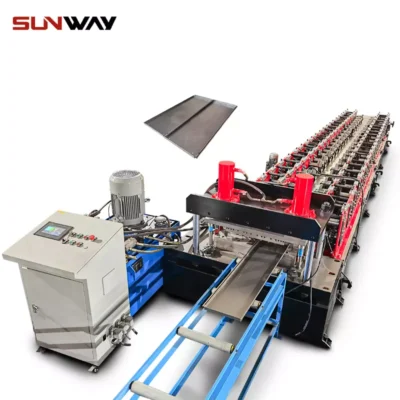 Steel Box Plate Making Roll Forming Machine
Steel Box Plate Making Roll Forming Machine -
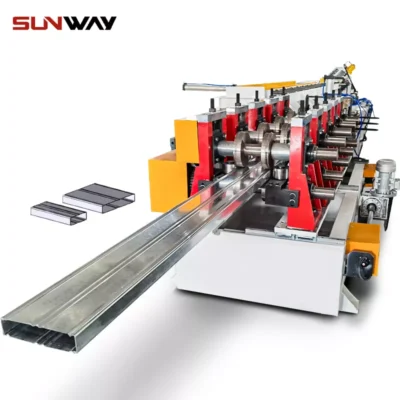 Box Beam Steel Roll Forming Machine For Shelf Column
Box Beam Steel Roll Forming Machine For Shelf Column
Machine Speed and Efficiency
Speed and efficiency are crucial when it comes to roofing projects. Here’s how different machines stack up:
| Machine Type | Speed (m/min) | Efficiency |
|---|---|---|
| Standing Seam Machine | 15-25 | High – suitable for large projects. |
| Corrugated Sheet Machine | 10-20 | Medium – efficient for small to medium runs. |
| Tile Forming Machine | 5-15 | Low to Medium – typically slower due to complexity. |
| Roll Forming Machine | 20-30 | Very High – ideal for varied profiles. |
Customized Mechanical Parameters
Customization can greatly enhance a machine’s performance. Here are some common parameters you might consider:
| Parameter | Description |
|---|---|
| Roll Diameter | Affects the radius of curves achievable in metal. |
| Feed Rate | Determines how fast metal moves through the machine. |
| Material Thickness | Varies the type of metal that can be processed. |
| Profile Depth | Allows for deeper profiles for added strength. |
| Length Settings | Adjusts the cut length for different applications. |
Applications of Metal Roofing Machines
Metal roofing machines are incredibly versatile and can be used in various applications:
| Application Area | Description |
|---|---|
| Residential Roofing | Ideal for homes seeking durability and aesthetic appeal. |
| Commercial Buildings | Used for warehouses, offices, and industrial facilities. |
| Agricultural Structures | Perfect for barns, silos, and other farm buildings. |
| Carports & Canopies | Provides protection for vehicles and outdoor spaces. |
| Architectural Features | Custom shapes for aesthetic architectural designs. |
Installation, Operation, and Maintenance of Metal Roofing Machines
Proper installation, operation, and maintenance are essential for maximizing the lifespan of your metal roofing machine.
| Aspect | Details |
|---|---|
| Installation | Requires skilled professionals to ensure correct setup. |
| Operation | Operators should be trained to use control panels effectively. |
| Maintenance | Regular inspections and lubrication of moving parts are essential. |
Suppliers and Price Range of Metal Roofing Machines
Finding the right supplier can make all the difference. Here’s a look at some popular options:
| Supplier | Price Range | Notes |
|---|---|---|
| XYZ Machinery | $20,000 – $50,000 | Known for high-quality standing seam machines. |
| ABC Metal Forming | $15,000 – $40,000 | Offers a range of machines suitable for various needs. |
| MetalMaster Pro | $25,000 – $60,000 | Specializes in custom solutions for larger projects. |
| FormTech | $10,000 – $30,000 | More affordable options for small businesses. |
Choosing the Right Supplier
Selecting the right supplier involves considering several factors:
| Factor | Considerations |
|---|---|
| Reputation | Check reviews and testimonials from previous customers. |
| Service Support | Ensure they offer reliable support and maintenance. |
| Product Range | Look for suppliers with a variety of machines available. |
| Customization Options | Assess their ability to provide customized machines. |
Pros and Cons of Metal Roofing Machines
Every investment has its pros and cons. Here’s a quick comparison:
| Pros | Cons |
|---|---|
| Durability | Initial investment can be high. |
| Versatility | Requires skilled operation and maintenance. |
| Aesthetic Appeal | Metal may be more expensive than traditional options. |
| Efficiency | Needs adequate space for installation and operation. |
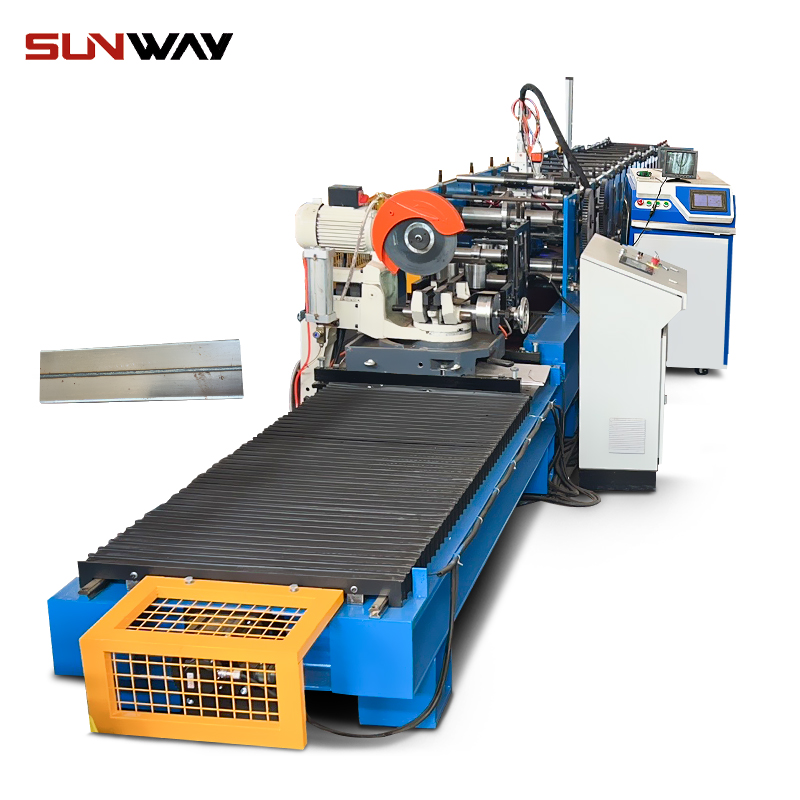
Conclusion
Metal roofing machines are essential for producing high-quality roofing materials efficiently. From understanding the different types and their functionalities to knowing how to maintain and operate them, it’s clear that investing in the right machine can lead to significant benefits. Whether you’re a contractor or a DIY enthusiast, the right metal roofing machine can elevate your projects to new heights.
FAQ
| Question | Answer |
|---|---|
| What is the average cost of a metal roofing machine? | Prices can range from $10,000 to over $60,000 depending on features and capabilities. |
| How long does it take to install a metal roofing machine? | Installation typically takes 1-2 days, depending on the machine complexity. |
| Can I use these machines for different metal types? | Yes, most machines can work with various metals, but thickness may vary. |
| What maintenance is required? | Regular inspections, lubrication, and cleaning of parts are essential for longevity. |
| Are there financing options available? | Many suppliers offer financing plans to help manage costs. |
